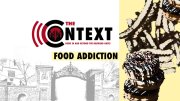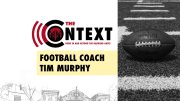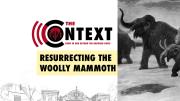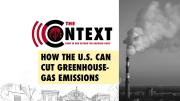Pick any popular subject in the news and it’s likely Harvard Magazine has covered it. With access to so many leading scholars, we’re often able to delve into topics in health, science, law, and the humanities before they reach the mainstream. This is the first post of "The Context"—a biweekly series of archival stories—offering our readers a useful background to some of the most important subjects in the news today. We hope you enjoy it.
Lerner professor of biological sciences Daniel Lieberman begins his review of Michael Moss’s new book, Hooked: Food, Free Will, and How the Food Giants Exploit Our Addictions, with a simple thought experiment. “Imagine or—even better—place two bowls in front of you: one with potato chips; the other with whole walnuts,” he writes in The New York Times. The walnut will be soft, buttery, and “faintly woodsy.” But the potato chip will instantly provide an intense combination of salt, sugar, and fat—engineered by multinational food companies for maximum addictive properties. What are the ethics, Lieberman wonders, of corporations marketing such addictive and unhealthy products? “[H]armful habit-forming foods have fattened corporate bank accounts at the cost of fattening hundreds of millions of Americans, contributing to countless premature deaths and debilitating illnesses as well as costing trillions of dollars. Even if you don’t consume these foods, you are paying big time for their consequences.”
Diet and health come up often in the pages of Harvard Magazine. A few years ago, we wrote about Lieberman’s research on how evolution has not caught up to the way humans produce and eat food, leading to results like cavities and obesity. More recently, we published “Healthy Plate, Healthy Planet," on the work of Stare professor of nutrition and epidemiology Frank Hu. His research confirming the benefits of plant-based diets motivates him to nudge the country toward healthier eating, advocating for restrictions on fast-food marketing and locations that could make junk food less appealing and ubiquitous. Like Lieberman, Hu keeps it simple. Cutting down on processed foods and meats, he stresses, is more important than following any rigid diet.
“Raw and Red-Hot,” another of the magazine’s most popular feature articles, also delves into the relationship between diet and health. In it, managing editor Jonathan Shaw explores how inflammation leads to a dizzying array of health problems, from cardiovascular diseases to diabetes and dementia. How to keep inflammation at bay? Good diet and plenty of exercise. Those looking for how diet and exercise are so effective will find the article fascinating.
Additional research by Lieberman featured in our pages amplifies those findings. We recently published an excerpt from his own book Exercised: Why Something We Never Evolved to Do Is Healthy and Rewarding), in which he discusses his “Active Grandparent Hypothesis”: how staying physically fit keeps grandparents happily engaged in their families’ lives. “We thus evolved to toil by the sweat of our brows in middle and old age in order to live to be useful and helpful,” he writes. For more of Lieberman’s work from our archive, check out “Head to Toe,” on how the human body evolved to run, and “Born to Rest,” which explains how evolution made humans great athletes and “honed a propensity to laziness.”
~Jacob Sweet, Associate Editor









